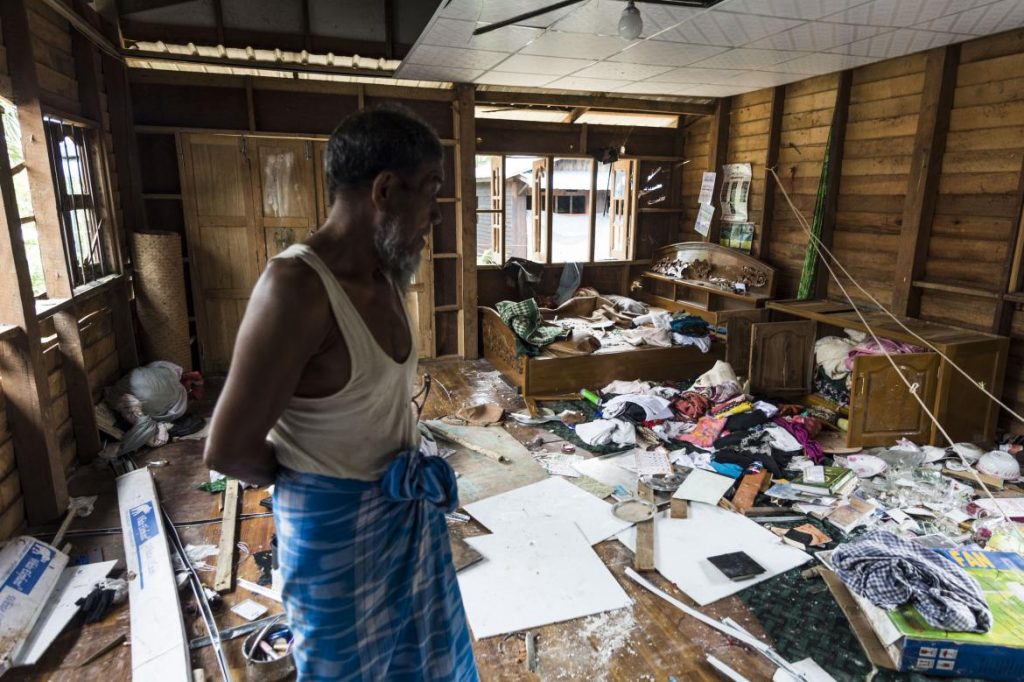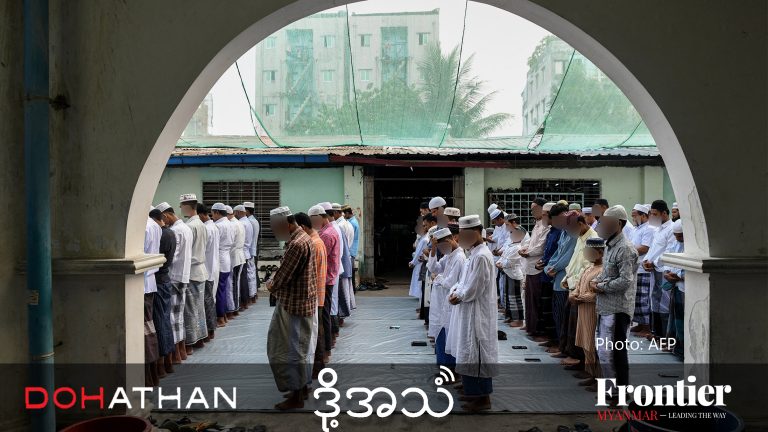Only when the authorities take firm action against both perpetrators of violence and those who inspire it can communal conflict be brought under control.
By SITHU AUNG MYINT | FRONTIER
ON JUNE 23, an outbreak of mob violence targeting Muslims occurred in Thuye Thamein village in Bago Region’s Waw Township. A Muslim accused of arguing with his neighbour was beaten up by a group of people. His house was ransacked and buildings in the village mosque were also targeted.
The police later managed to bring the situation under control, but nobody who took part in the damage to the house or the mosque were arrested or charged. Although this incident occurred during the time of the new National League for Democracy government, led by Daw Aung San Suu Kyi, it was very similar to communal violence outbreaks that occurred under President U Thein Sein. In many aspects it was exactly the same.
This incident prompts a number of questions. Is it likely that religious and racial conflict will continue to occur during the term of the NLD government? Will it be a source of pressure for the government? How can this issue be addressed?
Outbreaks of communal conflict under the previous government were normally sparked by a fairly mundane incident: in one case, a Buddhist and a Muslim arguing at a gold and jewelry shop, and in another a Buddhist novice being knocked down by a bike ridden by a Muslim. The recent incident at Thuye Thamein started in similar way, with a Muslim accused of swearing at his neighbour.
Support more independent journalism like this. Sign up to be a Frontier member.
Like in previous incidents, it escalated quickly from a personal quarrel: soon a group of men were beating the Muslim and ransacking his house and the nearby mosque. Police brought the situation under control, but no criminal action was taken. Police said this was because nobody had filed a formal complaint. The Bago Region chief minister was quoted as saying that no arrests would be made because the government didn’t want to create further conflict.
As a consequence of the violence and the lack of a firm response, Muslims dare not live in this village anymore. Within a few days, 44 of them had relocated from Thuye Thamein and moved to other villages.
The violence at Thuye Thamein escalated because – as in previous cases – the original incident was not solved according to the law. Residents resorted to mob violence and attacked the minority. The village is home to 1,000 households and has a population of 6,000. Of this, only 50 households are Muslim, accounting for around 150 people. Mutual violence is impossible given these demographics. It was a violent act by the majority against the minority. That’s the ugly truth.
But why does it keep happening? There are a number of reasons.
There has been a failure to ensure rule of law. Because no effective action has been taken against those who commit mob violence, people do not think twice before joining in and targeting the minority when the next incident occurs. This is largely the fault of Thein Sein’s government. It did not take strong enough action against those who committed violence. But Aung San Suu Kyi’s administration has continued the pattern.
The second reason is that some people are inciting people to commit acts of violence, without actually taking part personally. Again, no action has been taken against them. Often this incitement occurs through social media, such as Facebook. But it also takes place in more intimate gatherings; even some monks are advocating violence during religious events. Until today, there are no public examples of the authorities taking action against this behaviour.
The third factor is the spread of hate speech. Since 2012, some monks and other nationalist Buddhist have been conducting activities targeting Muslims. Some monks incite hate in their religious sermons and distribute these on CDs and online. In some places, photos and quotes designed to inspire hate against Muslims are being shared. At some religious classes being held to supposedly instil Buddhist morals and ethics, children are being taught to hate Muslims.
Union Minister for Religious Affairs and Culture Thura U Aung Ko has said he plans to draft a law against hate speech, but it will not be easy to draft and implement an effective law because some monks are doing exactly that. It is an emotional and sensitive problem.
Education and prevention activities need to be undertaken to combat the spread of hate speech. The authorities must take action against not only those that perpetrate violence, but also those who inspire and incite it.
As long as the government fails to take effective, religious and racial violence will continue to happen in Myanmar, undermining Aung San Suu Kyi’s mantra of “rule of law”.







